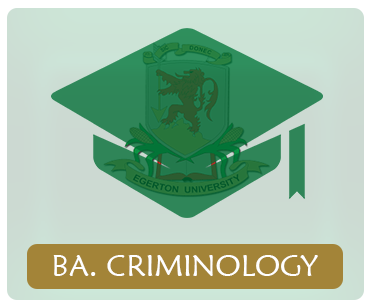About the Program
The recent trends of globalization and liberalization of local and international economies, have had a profound effect on both public and private sector organizations. In order to respond to these changes, organisations require human resource with appropriate knowledge and skills necessary for efficient and effective planning, development and management in competitive changing economic environments. The Master of Business Administration (MBA) programme of Egerton University addresses the need to develop individuals with essential knowledge skills, techniques and understanding for managerial careers. The programme caters for participants who have undergone prior business training as well as those whose professional background and pursuits are in other disciplines. As such, it is designed to meet the educational and technical needs of various professional fields and study areas, namely: business, health, law, education and engineering.
The MBA programme brings together fresh graduates and those from a variety of professional areas in the private and public sectors. It provides an opportunity for students to extend their academic experience by working with colleagues in related fields of specialisation. The programme is, therefore, analytically oriented combining lectures, class discussions, case studies, individual and group assignments and development of research skills. Links with the business community, industry and other business institutions are an important component of the MBA programme. The major areas of specialization to be covered in the programme are: Accounting, Entrepreneurship, Finance, Human Resource Management, Global Business Management, Management Information Systems, Marketing, Operations Management, Insurance and Risk management, Project Management and Strategic Management.
Program Objectives
The programme will have the following objectives:
- To provide a rigorous and critical grounding in key generic areas of management;
- To enhance self-confidence and the ability to evaluate practical business experience from an academic, practical and a critical perspective
- To develop awareness of the changing local and international business environment;
- To provide specialized knowledge of the chosen area;
- To instill a professional and problem-solving attitude in the practice of management;
- To provide an opportunity to the student to study in depth and breadth the theoretical and practical implications of ordinary and extraordinary management in various environmental settings; and
- To develop the essential skills and knowledge to deal with quality, change and employment issues facing contemporary organisations
Program Learning Outcomes
By the end of the programme, students should be able to:
- Explain the nature and role of business management.
- Describe business management concepts, theories and processes.
- evelop a strategic level understanding of the key functional areas of business.
- Analyze business situations and recommend appropriate policies and strategies.
- Conduct business research and communicate research results.
Admission Requirements
The common University rules and regulations for the Masters Degree programme specified in the Egerton University statutes No. 39 of 2013 shall be applicable.
In addition to (i) above,
- A holder of a Lower Second Class honours degree from a recognised university with at least two (2) years relevant work experience or relevant professional qualifications, or
- A holder of a Pass degree from a recognised university with at least two (2) years relevant work experience and relevant professional qualifications, or
- A holder of a professional qualification with at least two (2) years work experience and have passed university-level qualifying examination(s) in key subject areas approved by the Faculty shall be eligible for admission for the Master of Business Administration (MBA) programme.
How to Apply
- Apply online via the link given below the Program
- In the Registration portal, click apply and fill out your details in the fields
- Pay the Application fee of Kshs. 2,000 through Egerton University Account Number: KCB Bank A/C No. 1101906812
Fee
Fee Structure Annual charges for the programmes will be as follows:
Tuition Fee per Course Unit:
Undergraduate KES. 13,000.00
Administrative Costs Annually:
Undergraduate KES. 43,900.00
The breakdown of the administrative charges is given below
| Item | Frequency | Amount (Kshs) |
|---|---|---|
| Registration | Once | 2000 |
| Examination | Per Academic Year | 10000 |
| Material Development | Per Academic Year | 6000 |
| Library Fees | Per Academic Year | 5000 |
| Supervision Fee | Per Academic Year | 15000 |
| Student Union | Per Academic Year | 400 |
| CUE Charge | Per Academic Year | 1000 |
| Student ID | Once | 500 |
| Caution Money | Once | 4000 |
| Total | First Academic Year | 43900 |
The Annual Administrative fee for the 2nd year is less the Caution money and Student ID Charges (total, Kshs. 4,500) amounting to Kshs. 37,400
The fee summary is given below per academic year
| Academic Year | Administrative Fee | Number of Units | Total Tuition) | Total (Kshs) |
|---|---|---|---|---|
| Year 1 | 43900 | 12 units | 12*13000=156000 | 199900 |
| Year 2 | 37400 | 5 units | 9*13000=108000 | 145400 |
Note that the amount might be more depending on the number of units you take each session.
The fee is paid through the following bank account
KCB, Account no. 1101893680
Download a copy of the fee structure below
Program Coordinator

Dr. Simon Kipchumba
Lecturer : Applied Community Development Studies (ACDS)Phone # : +254 722 154 111
Email : lol@egerton.ac.ke


